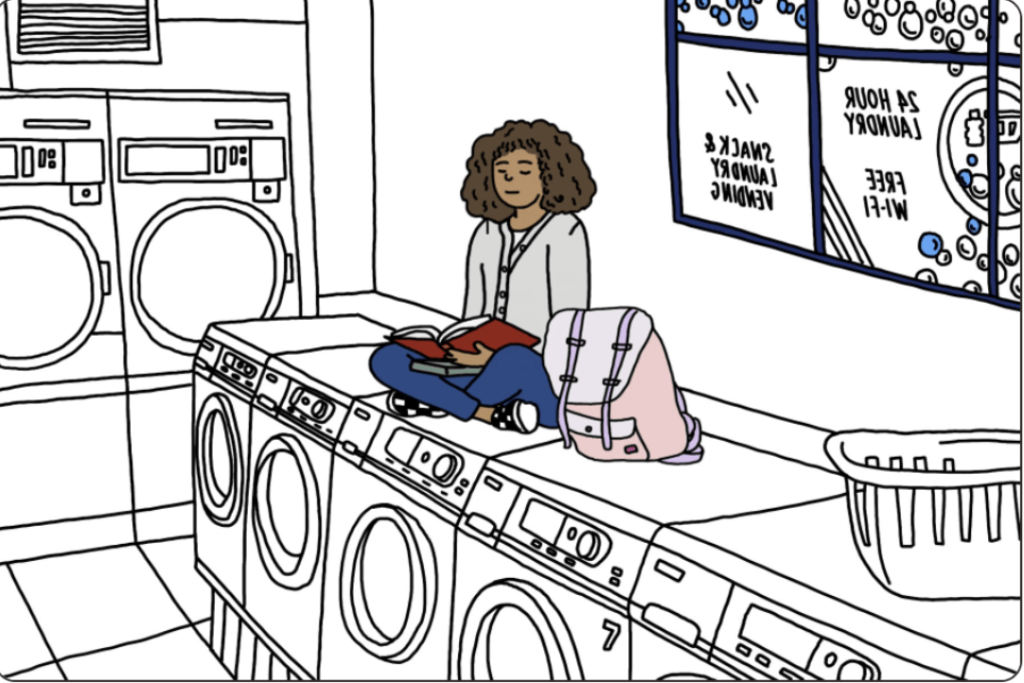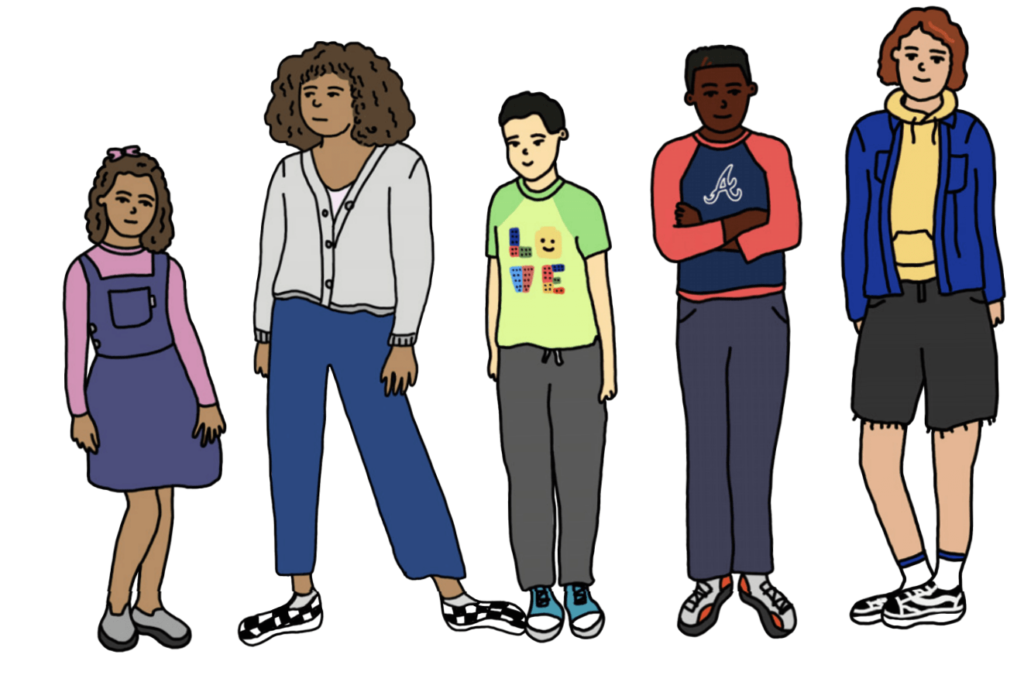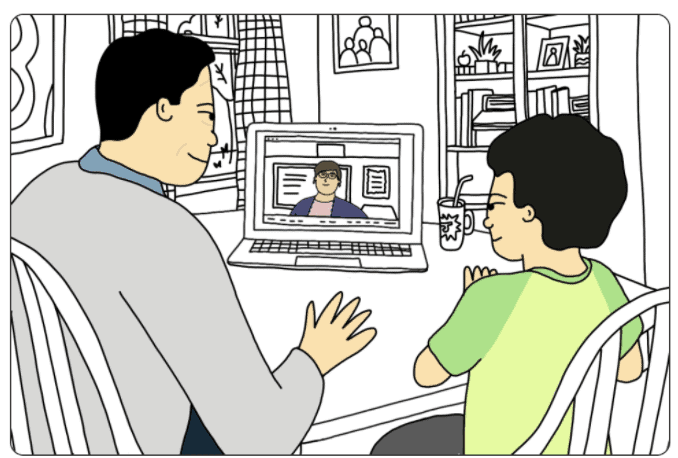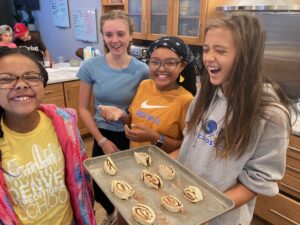Educating All Learners Alliance Launches Flagship Site, Shares Personas Educators Can Use to Understand Students’ Lived Experience During COVID-19

Although some teachers got a glimpse into their students’ home lives during video sessions this spring, many schools with little or no synchronous learning didn’t have a way to check in with students in real-time. As a result of school closures, teachers may not know how their students fared during the pandemic: whether they had a chance to keep up with their studies, or whether they had to prioritize family responsibilities like caregiving or working to support their households.
Teachers may also lack a real understanding of how the trauma of the pandemic affected their students. For learners who have historically been marginalized—including students who are Black, Indigenous, and people of color, English-language learners, immigrants, and students living with disabilities—the pandemic has exacerbated existing educational inequalities.
When educators are inundated, strapped for time, and experiencing their own stress and anxiety about the weight of the current situation, it’s hard to go from that fight or flight mentality and into a thoughtful, reflective, and empathetic frame.
These vulnerable learners will need more from our school communities this year, whether we’re operating in fully remote, hybrid, or in-person instructional environments. To help meet their academic, social, and emotional needs, educators need to take time to delve into what is happening off-screen in their day-to-day lives.
One of the best ways teachers, principals, coaches, counselors, and other educators can do this is by using student personas to more deeply understand students’ experiences and respond to their needs.
 Student personas: a composite picture of different students and their journeys
Student personas: a composite picture of different students and their journeys
Student personas—research-based representations of different types of students and their individual journeys through the education system—help educators understand, build empathy for, and start conversations about how to best support vulnerable students.
The Educating All Learners Alliance (EALA), through a collaboration between Brooklyn Laboratory Charter School (LAB) and Krishnaswami, has created a richly illustrated, interactive website that maps out five distinct student personas and the dozens of trusted adults who comprise their circles of support. The site is a free resource for teachers, administrators, families, and policymakers. It is intended for anyone who believes, as we do, that ending educational inequity for the most vulnerable learners clears a path to success for all learners.
The team created the personas based on interviews conducted over the summer with a range of experts, including special education teachers, a family engagement coordinator, an attendance teacher, and others from both charter and non-charter schools. The personas reflect a diverse group of students with a variety of special needs and individualized education plans (IEPs). They also reflect the distinct challenges inherent in both rural and urban school environments.
The personas were designed to represent students with IEPs for some of the most common conditions: autism, a hearing and speech impairment, a learning disability, an emotional disturbance, and a health impairment (asthma). They also detail each student’s individual challenges with technology access, family support, and school support during quarantine. LAB’s mobile-friendly interface features an engaging text- and graphics-based narrative that we hope will appeal to students as well as educators.
The persona’s key ingredient is a narrative that helps paint a picture of each student’s life at different points during the pandemic, from the first lockdown to the start of the new school year. Color-coded timeline “alerts” represent real-life events such as holidays, the presidential election, or when someone tests positive for COVID-19—to help take stock of the impact of change over time.
Helping educators understand students’ lived experiences
By detailing the lived experiences of students during the pandemic, educators can better identify their students’ feelings, aspirations, and pain points. That deeper understanding helps us build empathy and trust, which make up the foundation of successful teacher-student and school-family relationships.
“We all know what the research says about the importance of developing relationships and creating a sense of belonging in

a classroom and in a school,” said Barbara Pape, director of policy and communications at Digital Promise, a nonprofit that promotes equitable access to learning technology. “These personas help give teachers and other educators a better understanding of who these students are and what it will take to help them meet their potential.”
Personas can also guide us toward deeper conversations about how to meet students’ needs.
“I’m experiencing a lot of surface-level conversations, which end up being like, ‘If we get the devices in the hands of the kid, and if we get connectivity right, then our work is done,’” said Ace Parsi, Director of Innovation at the National Center for Learning Disabilities. “That conversation misses the deeper needs students have. The personas project is incredibly important for school decision-makers, state board of education members, and others in thinking about what our kids are actually experiencing.”
Sheldon H. Horowitz, senior advisor to the National Center for Learning Disabilities, said that student personas are especially powerful for understanding the needs of students with disabilities.
“Children are much more than their disability,” he said. “These are kids whose lives, with or without COVID-19, but certainly with COVID-19, are so complex. To be an agent of change or to be an ally, you need to know so much more and you need to invest so much more time in understanding their lives.”
This tool, Horowitz added, gets people to take action because it catalyzes an emotional response and builds an emotional picture of these students’ lives.
At EALA, we believe that when education is designed with the needs of students living with disabilities at the center, all learners benefit. Using the tool, teachers are invited to think more expansively about all of their students.
“The personas give you a picture of the full complexity of all the facets of students’ lives to help you think about your role, what you need to know, and who you need to interact with as an educator, as an administrator,” said Gabrielle Schlichtmann, Executive Director and Chief Scientist at EdTogether.
We hope these student personas help all types of educators start conversations with principals, therapists, coaches, and families about how we can all better support our most vulnerable students this year. We also invite educators to explore the resources linked in the interactive personas and on the EALA website, which are geared toward ways to support vulnerable learners and students living with disabilities.
For more, see:
- Equitybydesign.org
- educatingalllearners.org
- Preparing for a Healthy and Safe Return to School: Public School Facilities Planning in the Era of COVID-19
- Schools Need a Success Coach for Every Learner
- Preparing to Reopen: Six Principles That Put Equity at the Core
- To Reopen, America Needs Laboratory Schools
- How to Reopen Schools: A 10-Point Plan Putting Equity at the Center
- Reopening Schools: A Scheduling Map for Educators to Plan the Who, What, When, Where, and How of Learning this Fall
- The Front Porch: A New Approach to Support the Health, Safety, and Well-Being of Our School Communities
- Safeguarding Back to School: Preparation for a Healthy Return to School in Downtown Brooklyn
Stay in-the-know with innovations in learning by signing up for the weekly Smart Update.
We know that educators and leaders have spent the last couple of months scrambling to meet the immediate needs of learners in their community. Thank you to each and every one of you for everything you’ve done to make the best out of this challenging situation. Now that the end of the school year is here, we’re shifting our Getting Through series from stories and advice to support remote learning or long term closures, to getting ready for the complex work of reopening schools this fall.
Interested in contributing to this campaign?
Email your stories and ideas to [email protected] or tweet using #GettingThrough to participate!







0 Comments
Leave a Comment
Your email address will not be published. All fields are required.